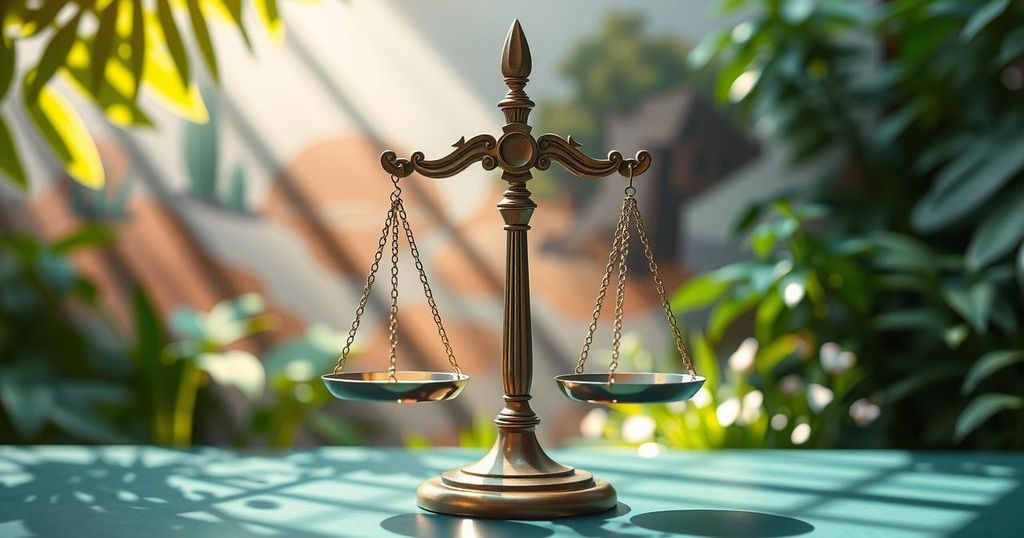The Egyptian government is called to take action on over 370 recommendations from a UN review that highlight serious human rights issues, including torture and repression of dissent. Human Rights Watch reports no progress since 2019 under President Sisi. The authorities face international pressure to release unjustly detained activists and amend harsh laws before the next Human Rights Council session in June.
On January 28, 2025, the Egyptian government is urged by Human Rights Watch to accept and act on numerous recommendations made during a United Nations review of its human rights situation. A total of 137 countries proposed more than 370 recommendations regarding serious issues including torture, arbitrary detention, and access to education and healthcare amidst a stark human rights crisis in Egypt.
Amr Magdi, a senior researcher at Human Rights Watch, emphasized that the government’s public relations efforts cannot alter the grim realities of human rights conditions in the country. He insisted that the authorities must enact genuine reforms, many of which require only political will, not financial resources.
The Universal Periodic Review (UPR) process, implemented since 2006, systematically evaluates the human rights records of UN member states every four and a half years. This process draws input from local and international organizations, including Human Rights Watch, which submitted information for the current review.
Since Egypt’s last review in 2019, there has been little to no progress on human rights, according to Human Rights Watch. The government under President Abdel Fattah al-Sisi has continued its repression, detaining and punishing peaceful critics and subjecting detained dissidents to torture and long periods of incommunicado detention despite a few releases.
Egypt remains one of the highest-ranking countries for execution rates, often resulting from mass unfair trials. Economic challenges, including rising poverty and inflation, further exacerbate the plight of citizens’ rights, particularly regarding access to essential services such as food, electricity, education, and health.
During Egypt’s review presentation, Foreign Minister Badr Abdelatty denied any abuses, citing alleged significant progress made by the government. However, this assertion contradicts the timeline of intensified repression against human rights defenders and journalists leading up to the review.
Recent actions include terrorism-related charges against Hossam Bahgat, a prominent human rights defender, and ongoing punitive measures against various civil society groups tied to foreign funding allegations. Those opposing the regime remain at significant risk of arrest and prosecution.
Reports of harassment continue for individuals related to dissenters abroad, with vague morality charges wielded against marginalized communities and those advocating for human rights. Activists in exile remain anxious about potential detention upon return to Egypt.
The UPR session saw several countries, including the UK and Luxembourg, call for the release of imprisoned human rights defenders and highlighted the need for reforms to align Egypt’s legal framework with international obligations. This includes fixing flaws in the proposed Criminal Procedural Code.
The Egyptian authorities have until the next Human Rights Council session in June to demonstrate engagement with the UPR recommendations. Magdi urged the government to release unjustly detained individuals, amend harsh laws, and allocate appropriate funds for quality education and healthcare services.
The article discusses the findings from the United Nations Universal Periodic Review (UPR) of Egypt’s human rights record, reflecting the growing concerns over the ongoing repression of dissent held by numerous international observers and member states. It highlights the severe criticisms the government faces and emphasizes the lack of progress in addressing human rights violations under the current regime, suggesting areas for essential reform.
In conclusion, the United Nations review sharply criticizes Egypt’s human rights record, urging the government to implement substantial reforms. The international community continues to hold Egypt accountable for its treatment of dissent, emphasizing the urgent need for improved conditions, respect for individual rights, and adequate legal reforms. Egypt’s response to these challenges will shape its future standing in human rights matters on an international stage.
Original Source: www.hrw.org




